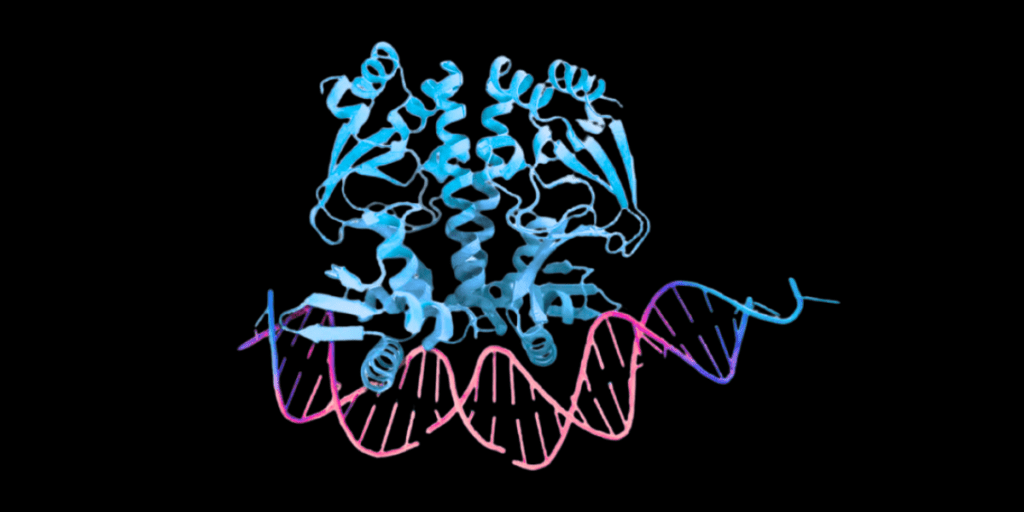Google DeepMind, collaborating with Isomorphic Labs, has Released an advancement to revolutionize our understanding of the human body and combat disease, the AlphaFold3 Molecular Behavior AI.
On May 8, 2024, the Release of AlphaFold3 can create a new era in biomedical research. It offers unprecedented capabilities in predicting the behaviour of human molecules at the microscopic level.
AlphaFold3 Molecular Behavior AI
The Release of AlphaFold3 builds upon a longstanding challenge in biology known as the protein folding problem. Proteins, essential microscopic molecules, dictate the behaviour of all living organisms.
Their functionality is intricately tied to their three-dimensional shapes, which emerge from folding linear amino acid sequences.
Before the emergence of AlphaFold technology, determining these complex structures posed a formidable obstacle for biologists, often requiring years or even decades of painstaking experimentation.
The significance of protein structure lies in its role as a blueprint for molecular interactions within cells. Understanding these structures provides crucial insights into biological processes and disease mechanisms.
The inability to accurately predict protein structures hindered drug discovery and biomedical research progress, limiting our ability to develop effective treatments for various ailments.
The advent of AlphaFold in 2020 marked a watershed moment in computational biology.
This AI system demonstrated the ability to decipher protein structures with remarkable speed and accuracy, revolutionizing the field of structural biology.

By harnessing deep learning algorithms, AlphaFold could predict the intricate folds of proteins within minutes, a feat previously deemed unattainable.
The release of AlphaFold catalysed a wave of scientific advancements, empowering researchers to expedite drug discovery efforts and unravel the complexities of diseases such as COVID-19, malaria, and Parkinson’s.
The technology provided unprecedented insights into molecular interactions, offering a glimpse into the inner workings of cellular machinery.
AlphaFold’s success underscored the transformative potential of AI in biomedical research, paving the way for further innovations in understanding and manipulating biological systems.
Its evolution into AlphaFold3 represents a significant milestone, expanding its capabilities beyond protein folding to predict the behaviour of other crucial biological molecules, including DNA and RNA.
AlphaFold
AlphaFold emerged as a game-changing solution to the protein folding problem, a longstanding conundrum in structural biology.
Developed by Google DeepMind, AlphaFold represented a paradigm shift in computational biology upon its release in 2020.
At its core, AlphaFold leverages deep learning algorithms to predict the three-dimensional structures of proteins with unprecedented accuracy.
Determining protein structures relied on experimental techniques such as X-ray crystallography and cryo-electron microscopy, which were time-consuming and resource-intensive.
AlphaFold revolutionized this process by harnessing the power of artificial intelligence to rapidly decode protein structures from amino acid sequences.
The key innovation behind AlphaFold lies in its neural network architecture, which learns the intricate relationship between amino acid sequences and their corresponding protein structures from vast datasets of known protein structures.
By training on this data, AlphaFold can predict the folding patterns of proteins with remarkable precision, providing valuable insights into their biological functions.

AlphaFold quickly gained traction within the scientific community upon its public release, empowering researchers to accelerate drug discovery efforts and deepen our understanding of disease mechanisms.
Its ability to rapidly predict protein structures has proven instrumental in tackling pressing health challenges, including the COVID-19 pandemic.
AlphaFold’s impact extends beyond protein folding, catalyzing computational biology and structural modelling innovation.
Its success has inspired further research and development in AI-driven approaches to biological problem-solving, propelling the field toward new frontiers of discovery.
The Release of AlphaFold3 represents the culmination of years of research and development, ushering in a new era of molecular prediction capabilities.
Building upon the foundation laid by its predecessors, AlphaFold3 expands its scope to encompass the prediction of DNA and RNA behaviour, offering unprecedented insights into the dynamics of cellular processes.
As AlphaFold continues to evolve, it holds the promise of revolutionizing biomedical research and transforming the landscape of medicine.
Finding the secrets of molecular interactions, AlphaFold empowers scientists to unravel the complexities of life and develop innovative solutions to combat disease, ultimately paving the way for a healthier future.
AlphaFold3
The latest iteration of Google DeepMind’s groundbreaking technology, AlphaFold3, represents a significant leap forward in our ability to predict and understand the behaviour of human molecules at the molecular level.
Building upon the success of its predecessors, AlphaFold3 extends its capabilities beyond protein folding to encompass the prediction of the behaviour of other essential biological molecules, including DNA and RNA.
One of the most remarkable features of AlphaFold3 is its ability to accurately predict the three-dimensional structures of proteins, DNA, and RNA from their respective sequences.
This predictive capability is made possible by advanced deep-learning algorithms trained on vast datasets of known molecular structures.
By analyzing the interactions between atoms and molecules, AlphaFold3 can simulate the dynamic behaviour of these molecules within living organisms, offering invaluable insights into their functions and roles in health and disease.
The significance of AlphaFold3 lies in its potential to revolutionize biomedical research and drug discovery efforts.
By providing researchers with a powerful tool for predicting molecular behaviour, AlphaFold3 streamlines the process of designing new drugs and therapies, accelerating the development of life-saving treatments for various diseases.
Technology Application
The application of AlphaFold3 extends beyond its development as a cutting-edge AI system to predict the behaviour of human molecules.
Its practical implementation offers researchers and scientists a powerful tool to accelerate various biomedical research and drug discovery aspects.
AlphaFold3’s primary application lies in accurately predicting the three-dimensional structures of proteins from their amino acid sequences.
This capability streamlines the process of understanding protein function and designing targeted therapies.
By providing researchers with detailed structural insights, AlphaFold3 facilitates the identification of potential drug targets and developing novel treatments for diseases.

Beyond protein folding, AlphaFold3 extends its predictive capabilities to encompass the behaviour of DNA and RNA molecules.
This includes predicting the secondary and tertiary structures of DNA and RNA sequences and elucidating their interactions with proteins and other biomolecules.
Such predictions are invaluable for studying gene expression, RNA processing, and regulating biological processes at the molecular level.
AlphaFold3 accelerates drug discovery efforts by enabling researchers to model the interactions between potential drug compounds and their target proteins or nucleic acids.
AlphaFold3 helps identify promising drug candidates with higher efficacy and specificity by simulating how molecules bind and interact within the body.
This reduces the time and resources required for drug development and increases the likelihood of success in clinical trials.
AlphaFold3 advances our understanding of complex biological systems by providing detailed structural insights into molecular interactions.
Researchers can use AlphaFold3 predictions to study protein-protein interactions, protein-ligand binding, and other critical biological processes.
This information enhances our knowledge of cellular function and disease mechanisms, paving the way for innovative research directions and therapeutic interventions.
Google DeepMind offers a user-friendly platform where scientists and researchers can access AlphaFold3 for their studies.
This fosters collaboration and knowledge-sharing within the scientific community, enabling researchers worldwide to leverage AlphaFold3’s predictive capabilities for their specific research goals.
Final Thoughts
This technology developed by Google DeepMind, has the potential to revolutionize biomedical research, drug discovery, and healthcare delivery in profound ways.
AlphaFold3’s ability to accurately predict the three-dimensional structures and behaviours of proteins, DNA, and RNA opens up unprecedented scientific discovery and innovation opportunities.
AlphaFold3 paves the way for the development of novel therapies and precision medicine approaches tailored to individual patients by providing researchers with invaluable insights into the molecular mechanisms underlying diseases.
AlphaFold3’s impact extends beyond the laboratory, offering promise for addressing pressing global health challenges and promoting equity in healthcare access.
Its user-friendly interface and accessibility empower researchers worldwide to collaborate and contribute to scientific advancements, driving progress towards improved health outcomes for all.
As AlphaFold3 continues to evolve and find new applications, its transformative potential in biomedical science is boundless.
By unlocking the secrets of molecular interactions and advancing our understanding of the complexities of life, AlphaFold3 heralds a future where precision medicine, personalized therapies, and innovative treatments become the norm.
AlphaFold3 represents a powerful tool for unlocking the mysteries of the human body and accelerating progress towards a healthier, more resilient future for humanity.
As researchers harness its capabilities to push the boundaries of scientific knowledge, the promise of AlphaFold3 shines brightly as a beacon of hope for better health and well-being worldwide.


